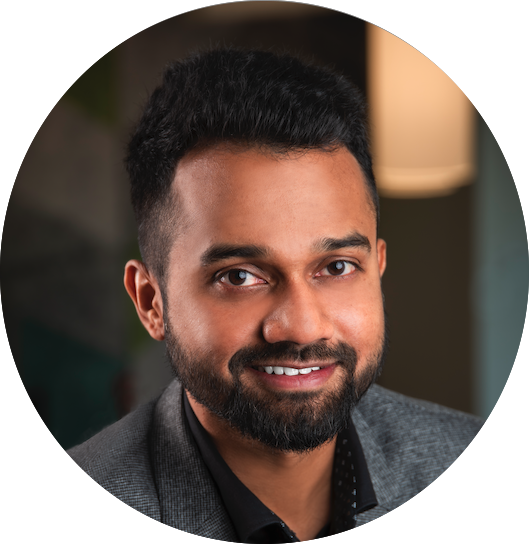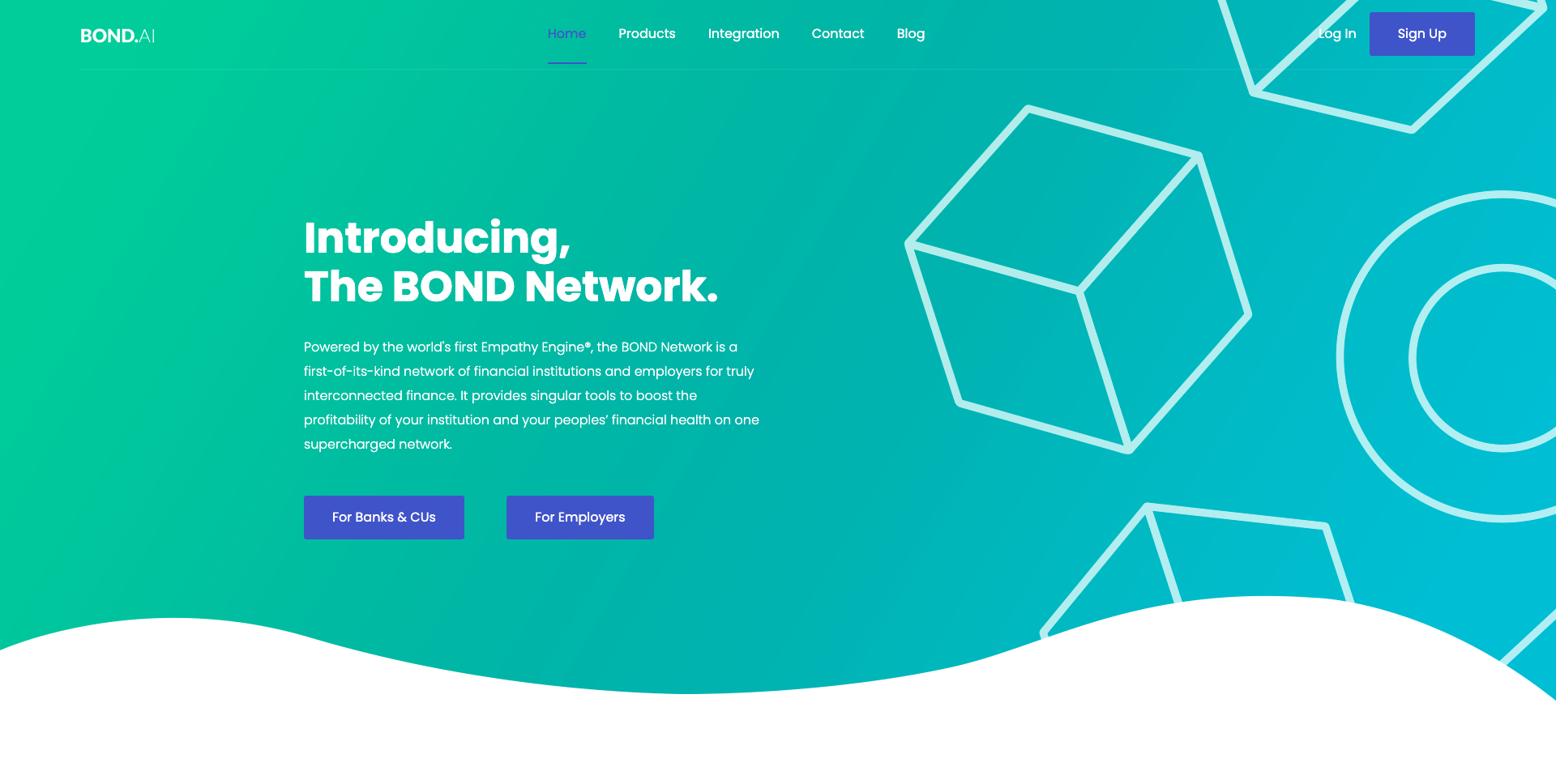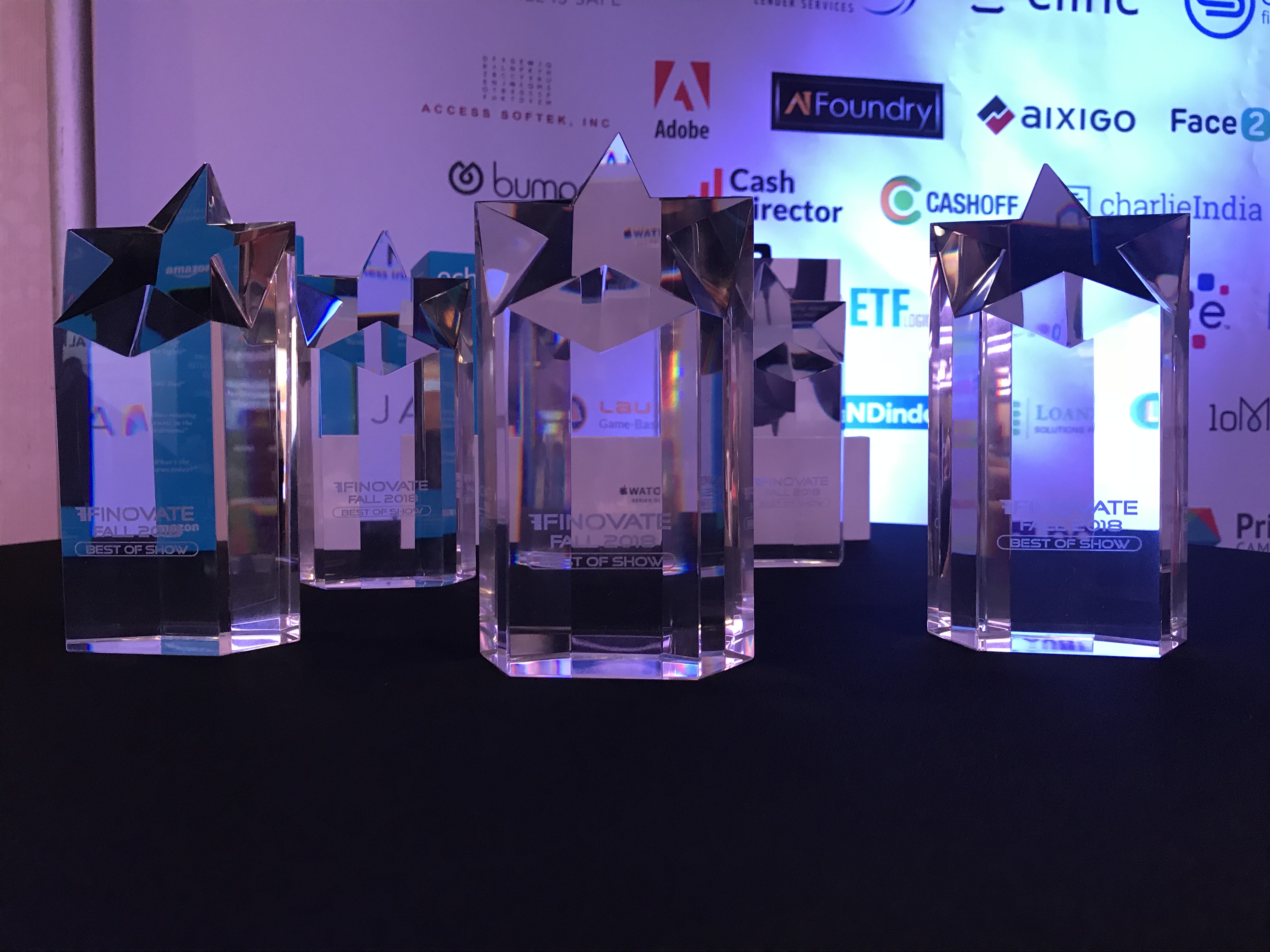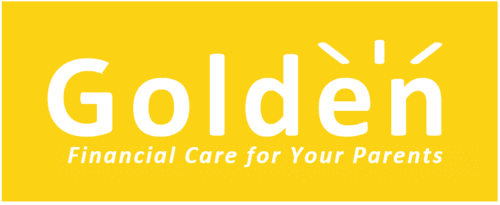
One of the more compelling presentations at FinovateFall this year was the keynote address from BOND.AI CEO Uday Akkaraju. Titled “Why the Future of Finance is Beyond Finance, And How to Get There,” Akkaraju’s discussion looked at the wave of digital transformation in financial services and asked “is there a radically smarter path to profitability while staying relevant to customer expectations?”
We pick up on this conversation in today’s extended interview with the BOND.AI CEO. Akkaraju has leveraged his background in interaction design and cognitive science to help make machine intelligence more empathetic and human-oriented. The result is the world’s first Empathy Engine for finance – a technology that helps bridge the gap between consumers struggling to meet their financial needs and banks that are eager to engage these consumers with new technologies that offer greater personalization and effectiveness.
Founded in 2016 and headquartered in Little Rock, Arkansas, BOND.AI won Best of Show in its Finovate debut at FinovateFall 2018. We talked with the company’s CEO about the how the company is helping financial institutions better serve their customers, as well as what to expect from BOND.AI in 2023.

You recently spoke at FinovateFall on Why the Future of Finance is Beyond Finance. Can you tell us a little bit about what you shared with our audience in that keynote?
Uday Akkaraju: It was my pleasure to be asked to speak again at FinovateFall this year. A lot has changed since I spoke last time in 2018! And a lot has changed for the better in terms of banking.
The pandemic spurred investments in technology and digital channels to reach customers—a benefit for the banking and fintech industry. However, we must now utilize opportunities accelerated by the pandemic to create a future of better financial health for everyone.
I wanted to use my keynote speech to highlight the “Empathy Gap” between what customers need and what banks can offer today, especially given the fast-changing economic environment. For me, it’s essential we discuss how fintech can help bridge the communication gap between banks and customers. Banks need to strategically implement discourse analysis tools with measurable KPIs to ensure they don’t return to past mistakes.
That’s where human-centered AI comes in. In this case, AI is our chatbot-powered Empathy Engine that can converse with customers via an app to get a deeper understanding of their needs. Through conversation, banks can grow their revenue using customers’ contextual information. With more customer data, individual banks can meet and even predict an individual’s needs, improving financial health as they tailor their products and services as a result. Of course, conversational data is only a part of it. You still need the bank data – otherwise, you only get half the truth.
BOND.AI won Best of Show at FinovateFall 2018 with a live demo of its Empathy Engine. You’ve also talked about something you call the “Empathy Gap.” For the uninitiated, what does the “empathy gap” mean?
Akkaraju: The Empathy Engine is our main vehicle for closing the gap between customer needs and a bank’s inability to meet those needs, which we’ve labeled the “Empathy Gap.” We quantify this gap between what banks offer and what individuals need to be worth roughly $34.2 trillion. I like to say the only thing that changes faster than technology is consumer expectations. Unfortunately, banks’ inability to keep up with those expectations leaves them with a lot of money left on the table for them and a lot of lost opportunities for consumers.
The Empathy Engine helps banks to better communicate with and service consumers to close this “Empathy Gap.” We use its ability to talk directly to customers and deliver personalized service at scale. This aids banks in seeing a holistic picture of each individual and better meeting their financial needs.
The main point of my presentation, though, was to make it clear it’s not going to be possible for one fintech or financial institution to close that gap alone. That’s why we created The BOND Network, to connect banks, employers, and fintechs and make it a true network—not just a marketplace—to balance the needs of all three stakeholders.
How does BOND.AI’s Empathy Engine flow from this?
Akkaraju: We launched the world’s first Empathy Engine for finance in 2018. It’s designed to bridge what the consumer needs against what the bank can offer to give a holistic view of customers, including their needs, strengths, weaknesses, and potential.
Right now, for customer segmentation, banks only consider financial data, and that information remains too broad. It fails to keep up with fast-changing consumer expectations or recognize an individual’s circumstantial information. Segmentation should consider both financial and non-financial data to be effective and offer a hyper-personalized approach that talks directly to the customer.
The BOND.AI Empathy Engine was developed in response to this insight. Instead of considering massive amounts of data with lots of noise, the engine moves to a small-data approach, where segmentation happens based on actual and observed behavior rather than traditional correlations and predictors.

Who is BOND.AI’s primary market and how do those customers use your technology?
Akkaraju: Our primary market is currently made up of financial institutions to whom we provide a white-label solution for insights, analytics, and customer communication. These are our core customers, and they are also members and contributors to The BOND Network.
We also have employers on the network who provide our mobile app to their employees as a financial benefit. At this point, we have 28 employers bringing about 300,000 employees into the network, which is set to grow next year.
What makes BOND.AI’s technology unique in the way it solves problems for your customers?
Akkaraju: Our Empathy Engine is the first-of-our-kind, human-centered technology focused on increasing the financial health of institutions and individual consumers. It also powers The BOND Network, which nurtures an ecosystem of financial institutions, fintechs, employers, and employees that all benefit. The engine identifies stakeholder needs and connects the dots to fulfill those needs, thus making this a network rather than a marketplace.
This is how our efforts move ‘beyond finance’. We believe to bridge the Empathy Gap it will take collaborative action to understand people as more than just transactional data and talk to them instead to establish their needs and situational context. With AI tools, we can speak directly to customers from the comfort of their own home or on the go with our mobile app. This intimacy builds trust and strengthens the customer’s relationship with their bank, so people feel able to share their problems.
The best part? Insights are there for everyone across the network to see how they can further close the Empathy Gap.
I think some would be surprised to learn that BOND.AI has headquarters in Little Rock, Arkansas. What does Little Rock offer a company like BOND.AI?
Akkaraju: There’s a lot we feel Little Rock can offer us, which is why we moved here! We were previously based in New York but chose Little Rock strategically for both the company and our employees. The work-life balance is good here. There’s also barely any commute considering most places can be reached in 20 minutes. That’s ideal for a fast-growing start-up where time is money.
There has been a move away from the coast, but tier-two cities are also getting a little cramped. People are happy to explore other options at this point, and Little Rock is an interesting place where both company and employee dollars stretch further.
There are also a lot of possibilities here for us as a start-up looking to connect with employers and their workers. Walmart’s headquarters is here, and many of its vendors are nearby. You don’t need to move to the city to find talent and opportunity. The next thing we’d like to do is start consciously investing in the local talent we think is out there to really prove that to people.
What can we expect from BOND.AI in 2023?
Akkaraju: In 2023 we’re excited for our app to be going direct-to-consumer via employers and expanding our partnerships for The BOND Network. We’ll be using these acquisitions to grow the company organically. These developments will also aid us in our mission to give the power of data back to the consumer and show banks what types of data they can leverage more effectively.
We want to focus on alternative wealth building, giving more people the tools they need to take control of their finances confidently. Budgeting is good, but it doesn’t fix the bottom line and, in many cases, more support is needed. We want to extend the possibilities of financial inclusion by giving everyone access to the tools used by high-net-worth individuals and sharing guidance on how to use them.


